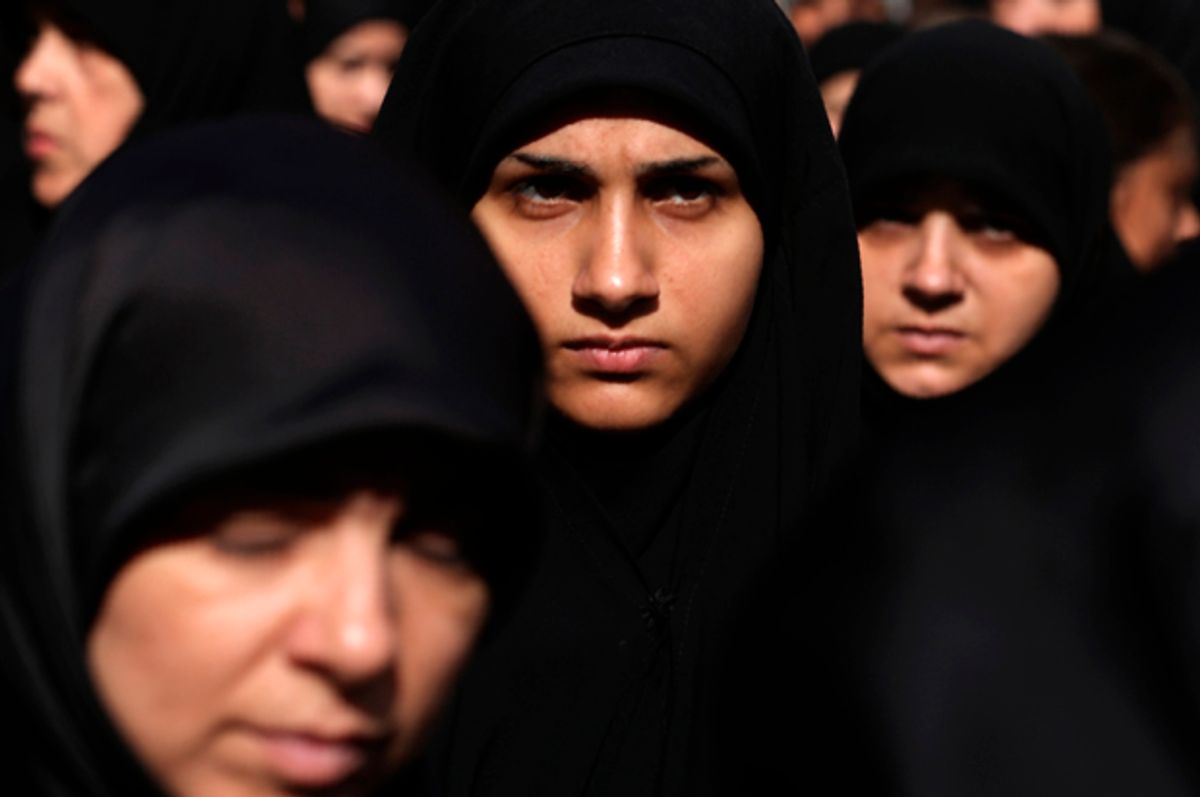In March, a sinister leaflet declared a point-based system in which attackers would be rewarded with marks if they assaulted, threw acid on, or "butchered" a Muslim on April 3. The paper circulated first in the United Kingdom where media reports said in addition to online images of the leaflet, four members of Parliament from the Labor Party had received the Islamophobic letter. The leaflet promotes a number of crimes, including bombing a mosque, for “Punish a Muslim Day.” But for Muslim women, such a day — and the potential venom it could bring — is especially terrifying and all too real.
A report by the Islamic Sciences and Research Academy of Australia and the Diversity Council Australia found that in Australia, Muslim women are much more likely than men to be targets of vicious Islamophobic crime. The collaborative report noted that out of 243 Islamophobic attacks in Australia, 67.7 percent of the victims were Muslim women. In the United States, the New Republic noted that Islamophobia against Muslim women is often because of visible markers like religious headscarves.
Mona Kafeel of the Texas Muslim Women's Foundation told TNR that the hijab is “something you can see from far away. I have colleagues who, when they drive around, are scared to stop at a red light, because people make all kinds of gestures. Visibly religious Muslim women are set aside and targeted. Mostly women are being targeted, I haven’t come across any men — yet.” Time and again, identifiers such as the hijab (headscarf) and abaya (overcoat) are pointed as the markers that make Muslim girls and women stand out in crowds and subsequently, become easy targets of violent Islamophobic attacks.
To battle fear and paranoia, the Metropolitan Police in the United Kingdom told locals, “At this time there is no credible information to suggest there is any criminal activity that will take place. We will be encouraging local faith and community networks to take part in a '#WeStandTogether' campaign.” The leaflet has caused apprehension in the United States as well where, research notes, after the 2016 presidential election, hate crimes became particularly intense against minority women. In New York, local authorities have increased police presence around mosques to address potential hate crime. On social media, “Punish a Muslim Day” has caused worry and anger among Muslims and allies. Muslim women spoke of their concerns on Twitter while some suggested that staying home was better than getting physically or verbally assaulted by a stranger.
Still, in spite of the disturbing leaflet content, many Muslims said that they wouldn’t let such a vile and racist piece of paper dictate how they go about their day. Huffington Post reporter Rowaida Abdelaziz tweeted, “I've been seeing Whatsapp messages, snaps, Facebook statuses and other folks telling Muslims, particularly hijabi women, not go out tomorrow because of ‘Punish a Muslim Day.’”
“Every woman should do what makes her feel comfortable,” Abdelaziz said, “but I am choosing to go about my normal day. Try me.”




Shares